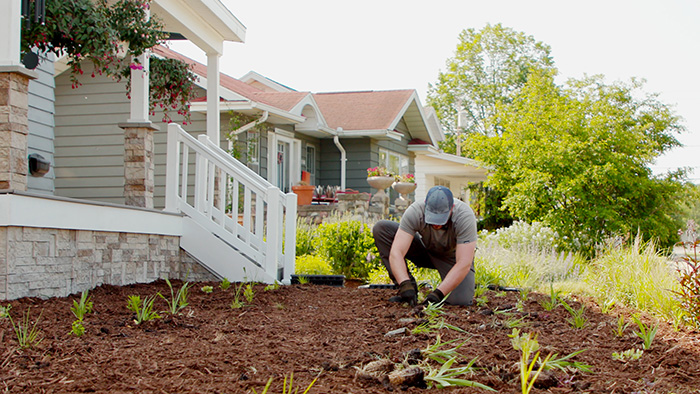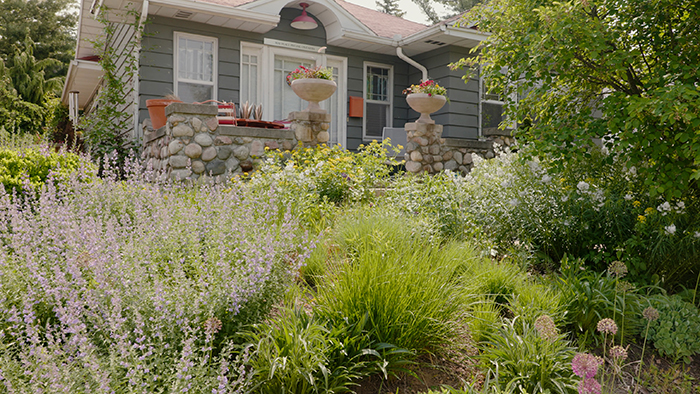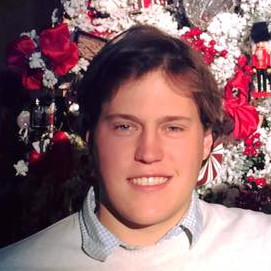Throughout the 2023 season of Let’s Grow Stuff, co-host Ben Futa is leading a sustained conversation, both in videos and on the PBS Wisconsin blog, on the topic of lawn conversion.
Visit pbswisconsin.org/letsgrowstuff and the PBS Wisconsin blog throughout the summer to explore all-new episodes.
We spoke with Ben to learn more about the season and how the topic of lawn conversion is particularly timely in the context of the especially dry summer Wisconsin has experienced thus far.
PBS Wisconsin: When you and the Let’s Grow Stuff team were planning for this season, why did you choose this topic?
Ben Futa: When the show started, it was really geared towards beginning gardeners. This year we said, ‘You know, people have been hanging out with us this long. What are some bigger topics that, now that you’ve been growing plants for a while, what you might be thinking about?’
I think for both Qwantese [Winters, Let’s Grow Stuff co-host] and me, we each have our lanes, we each have our things that we’re passionate about. There’s a lot in the plant world that one person can’t possibly know everything about. I think it reads as more authentic, and we’re more excited to talk about things we’re really geared up for and know about. For me, that was lawns. Lawn alternatives became a theme of the season in a big way.

Let’s Grow Stuff co-host Ben Futa converting a front lawn into a meadow.
PBS Wisconsin: The first episode on lawn conversion was launched in late June and the first blog post associated with this process came out in May. Both of those seem like good precursors for what’s to come.
Futa: Totally. There’s certainly a lot to the process, but it really isn’t any more than conventional lawn care. I think that’s what I’m hoping to help people realize. It might look complex and intense, but there’s a formula, and it’s not that complicated of a formula.
For context of the dry season, our front lawn that I have been converting the last couple years, in this dry spell that we had, which was probably six to eight weeks, I watered twice. The only reason I did is because I added another layer of small plants that didn’t have deep root systems yet. Otherwise, I wouldn’t have watered at all.
I think a lot of this conversation certainly has been built around the notion of ecology and diversity. But, if you reframe that to say, we’re going to save you time, we’re going to save you money, and oh, by the way, it’s going to be good for the planet – it reframes the value proposition. That’s what I’m hoping people will take away from this season. What would it feel like to have an extra hour or two back in your week all the time? What would it feel like not to have to lug hoses and drag sprinklers or look at your water bill skyrocket?

Converted meadow in former lawn space.
PBS Wisconsin: A subsect of contemporary land-owning Midwestern culture takes a lot of pride in their lawns. Overall, how do you think Wisconsinites will reckon with the impacts of climate change?
Futa: I think it’ll probably manifest in a couple ways. I think where I always come back to with it is, it shouldn’t necessarily be about guilt. It shouldn’t necessarily be about shame in the sense of like, I have this big green space and I feel so bad.
The other piece I think that’s important to recognize is, I don’t advocate for getting rid of all lawns. I advocate for getting rid of purposeless lawns. Lawns that are there as green carpet and have no service, no other purpose whatsoever. (People and families with) kids, dogs, recreation uses – their lawns have a purpose and a place. I just think they’ve been overused. I think it’s important to recognize that we can still have our cake and eat it, too – recognizing that there’s different ways to care for conventional lawns that are less impactful.
 Passport
Passport








B'Ann Gabelt
Can you share some of your plant palate for the meadow lawn conversion?